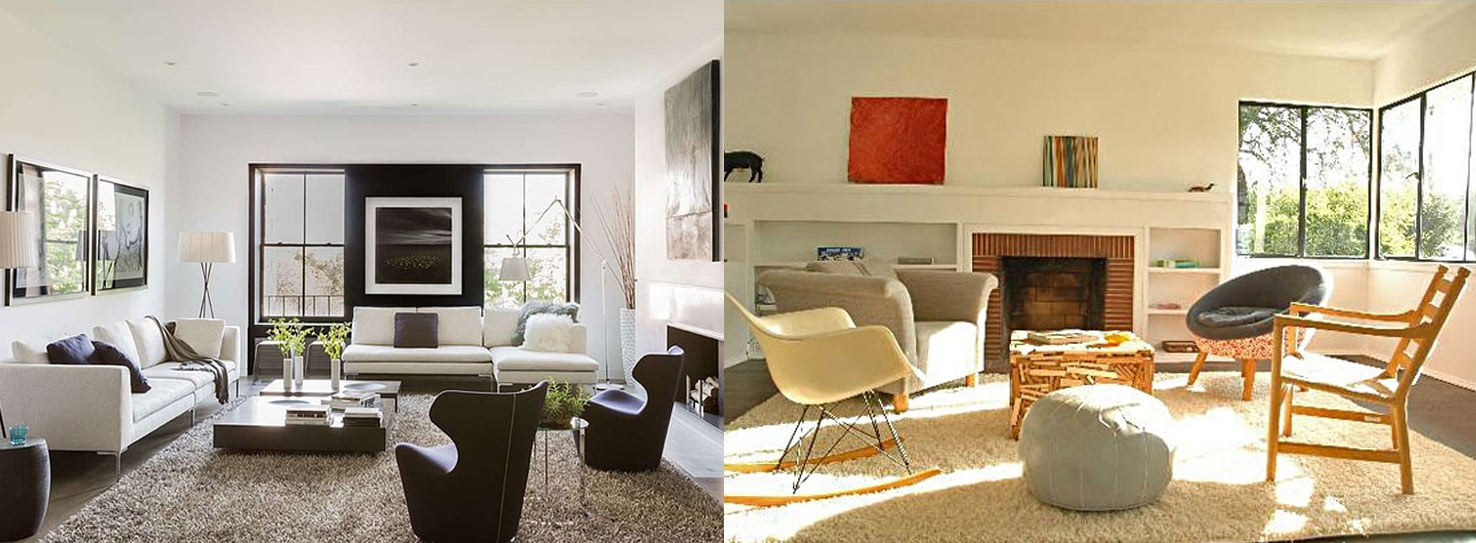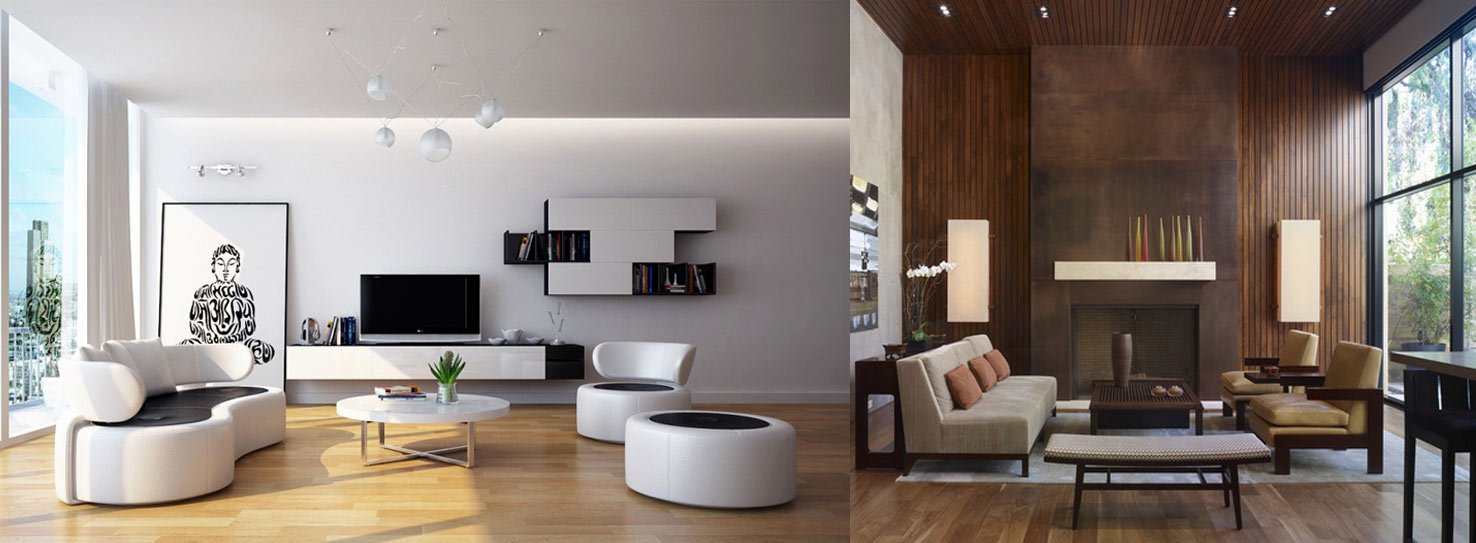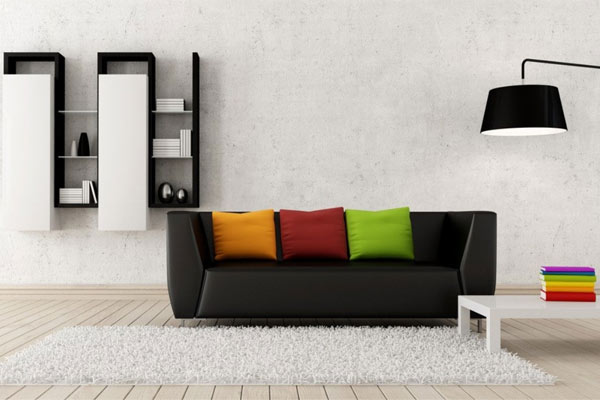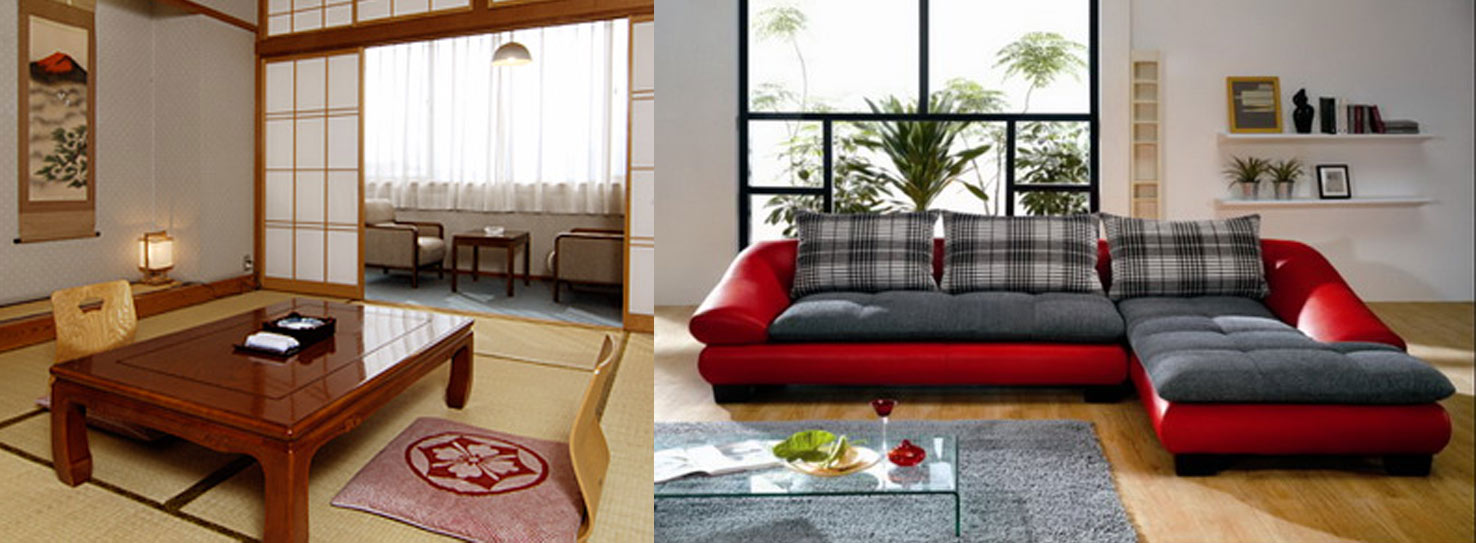Teeny Tiny Rug
Uncomfortable Furniture
Not Enough Lighting
 In every room it’s important to have the three main types of lighting: ambient, task and accent. Ambient provides the overall illumination, task directs light to certain work areas, and accent provides drama, highlighting specific objects. Since living rooms have no specific purpose (unlike a kitchen or bathroom) it’s important to have lighting that can sufficiently illuminate whatever activities is going on there. The best way to achieve this is to scatter different types of light throughout the room. Along with having the three main types, it’s also important to make sure that lights are placed at different levels throughout the room (beginning at table height and going higher, all the way to the ceiling).
In every room it’s important to have the three main types of lighting: ambient, task and accent. Ambient provides the overall illumination, task directs light to certain work areas, and accent provides drama, highlighting specific objects. Since living rooms have no specific purpose (unlike a kitchen or bathroom) it’s important to have lighting that can sufficiently illuminate whatever activities is going on there. The best way to achieve this is to scatter different types of light throughout the room. Along with having the three main types, it’s also important to make sure that lights are placed at different levels throughout the room (beginning at table height and going higher, all the way to the ceiling).
Not Creating a Focal Point
 Creating a focal point is incredibly important for grounding a space. Sometimes they appear naturally as windows or built-in mantles, while other times you create them yourself, as with media units and televisions. But once you’ve figured out what your focal point is you can (and should) arrange your furniture around it. When there’s no focal point everything looks like it’s just floating in the space.
Creating a focal point is incredibly important for grounding a space. Sometimes they appear naturally as windows or built-in mantles, while other times you create them yourself, as with media units and televisions. But once you’ve figured out what your focal point is you can (and should) arrange your furniture around it. When there’s no focal point everything looks like it’s just floating in the space.
Forgetting About Mirrors
 Every living room needs at least one decent-sized mirror. The main reason is because mirrors reflect light, open up spaces, and just generally make a room look better. Before you hang a mirror take into account what is across from it. While we often hang mirrors based on available wall space, it’s important to think about what will be reflected in it. Also make sure it’s always hung at the appropriate height for the space. Unlike art which should always be hung at eye level, mirror placement will depend on what you want reflected. Eye level works in many cases, but higher or lower can work depending on the situation.
Every living room needs at least one decent-sized mirror. The main reason is because mirrors reflect light, open up spaces, and just generally make a room look better. Before you hang a mirror take into account what is across from it. While we often hang mirrors based on available wall space, it’s important to think about what will be reflected in it. Also make sure it’s always hung at the appropriate height for the space. Unlike art which should always be hung at eye level, mirror placement will depend on what you want reflected. Eye level works in many cases, but higher or lower can work depending on the situation.
Opting Out of Window Treatments
 94970 12000
94970 12000




Recent Comments